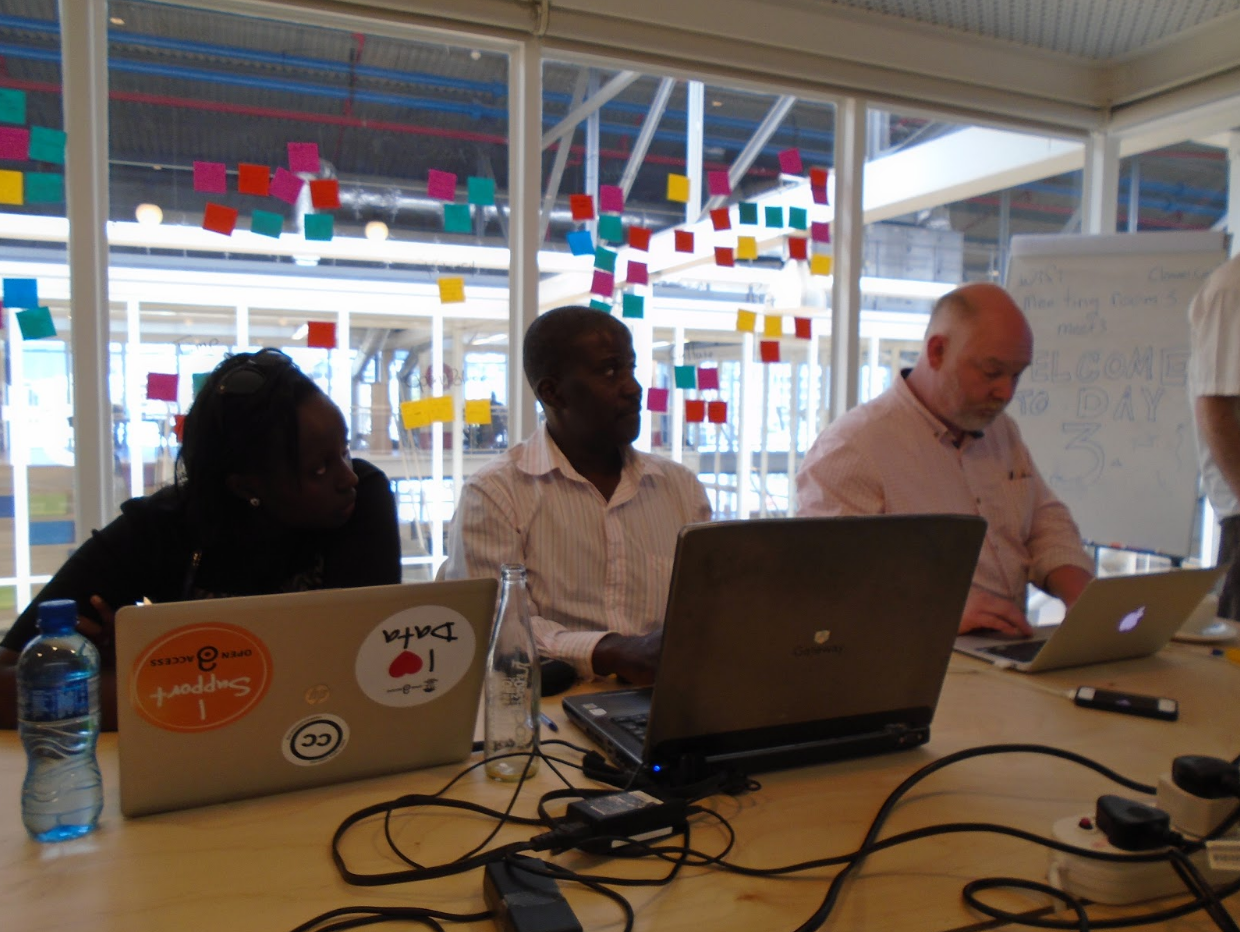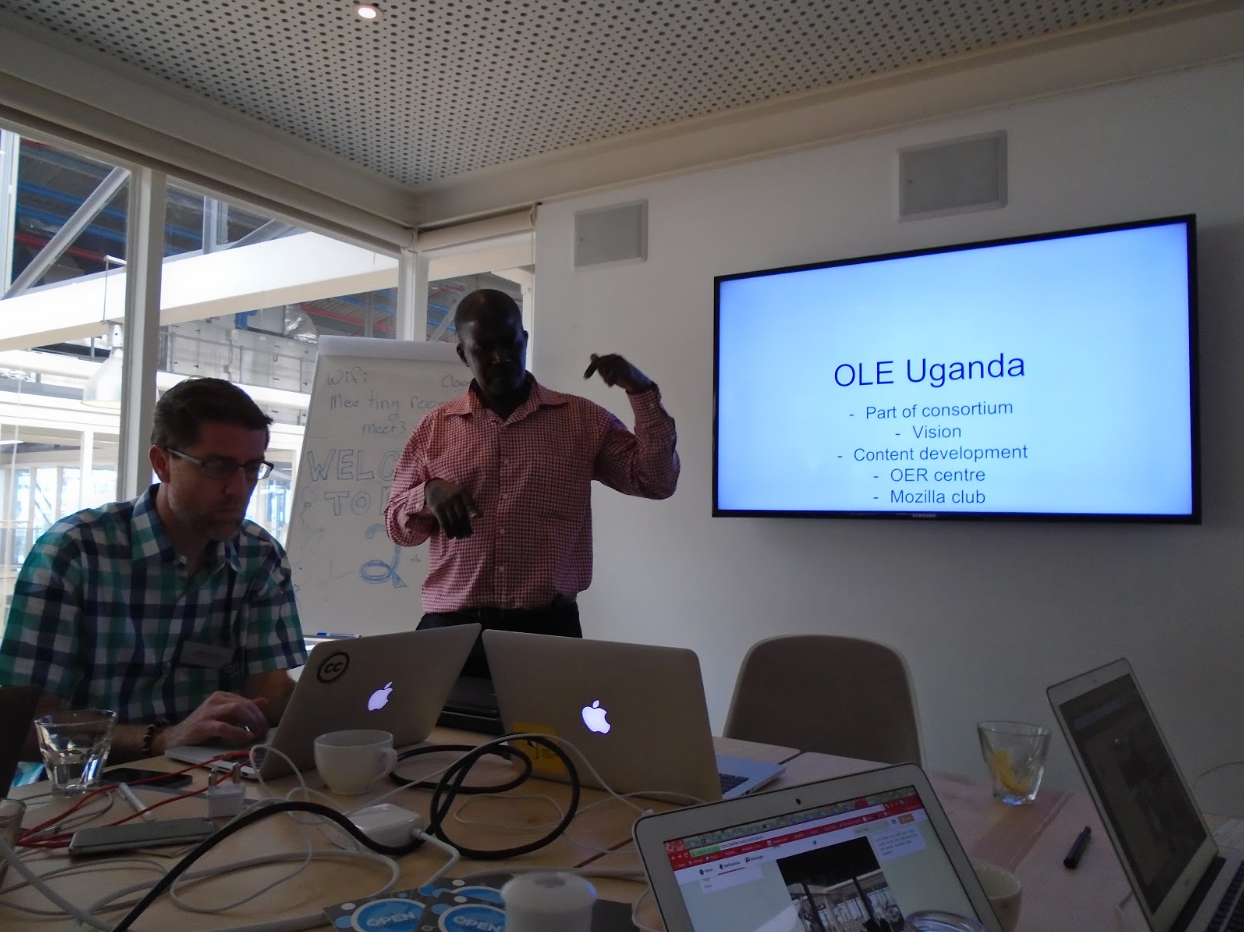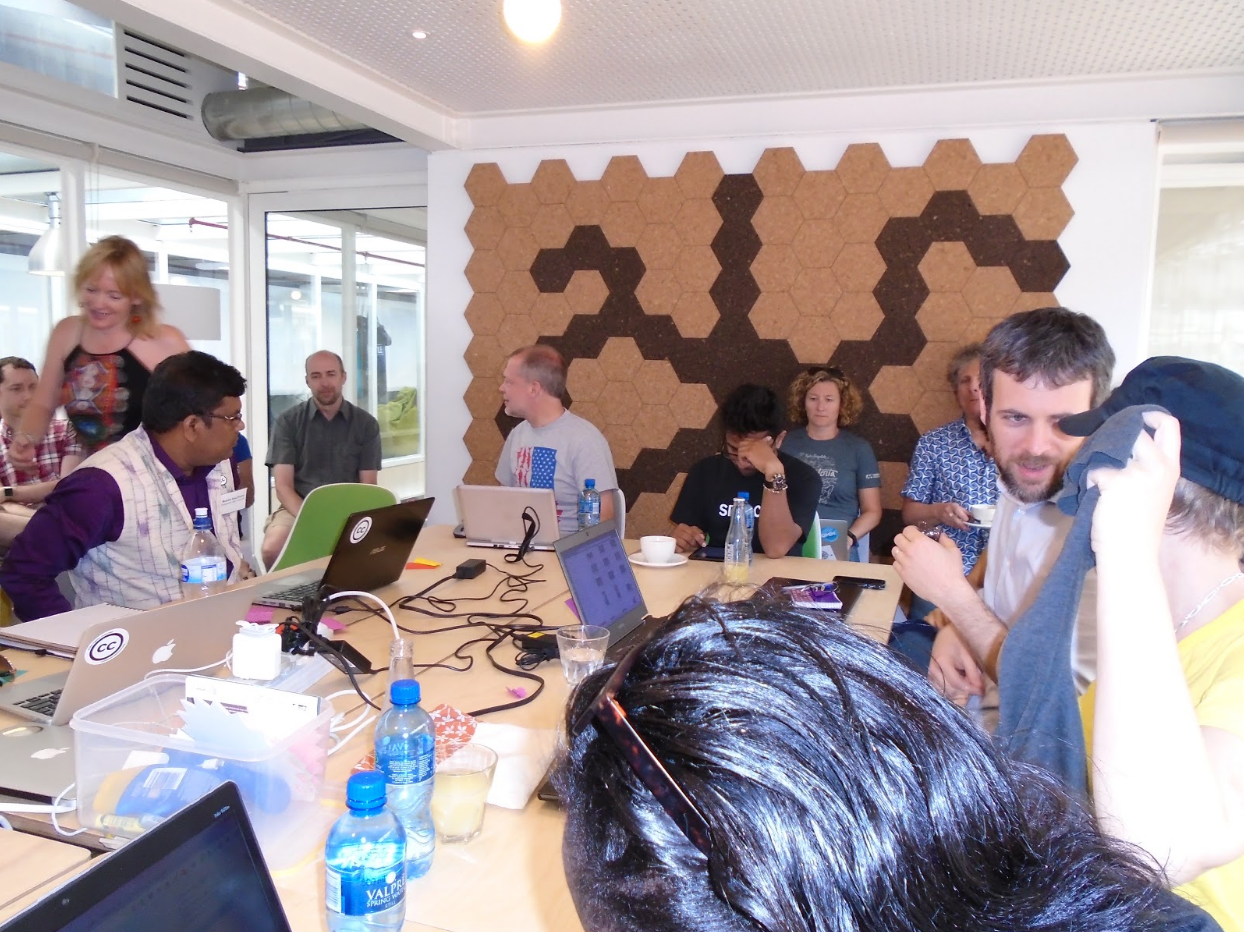Exploring open textbooks to improve education in Uganda
Open EducationIn March we hosted the second Institute for Open Leadership. In our summary of the event we mentioned that the Institute fellows would be taking turns to write about their open policy projects.
As a Ugandan science educator with a background in computer science, I have witnessed thousands of kids dropping out of school because their parents cannot afford buying the textbooks that schools require. This is exacerbated by the fact that teachers have limited access to affordable and up-to-date educational content. Only recently, I was appointed as a board member of a school that does not have a single textbook!
 Photo by Vincent Kizza, CC BY 4.0
Photo by Vincent Kizza, CC BY 4.0
When I was introduced to Open Educational Resources around 2011, it appeared to me that these resources could go a long way in helping to solve our predicament in Uganda. Since then, I’ve spent time researching OER and the concept of “openness”, but I didn’t fully understand more complex issues like open licensing. For that reason, the invitation to attend the 2nd Institute for Open Leadership seemed like an incredible opportunity to learn more about open licensing, and how it could assist us in improving access to educational materials in schools.
 Photo by Vincent Kizza, CC BY 4.0
Photo by Vincent Kizza, CC BY 4.0
I’ll remember the IOL fellowship meeting in Cape Town for a very long time. For the first time in my life, I met with world-class professionals passionate about sharing their knowledge, skills, and experience. It was very refreshing to learn from people who have had experience in doing all types of “open” projects, and it seemed like every question I raised was answered from the diverse group of participants. In addition to assisting me in my work within open education, we discussed related concepts such as open data, open science research, open business models, and the application of open concepts in the museums sector. I was also able for the first time in my life to see a fully open textbook in print form (as most of the time they are offered only in digital format). This was very interesting and I’m grateful to Kelsey Wiens of CC South Africa for sharing her experiences of working on an open textbook project there. The institute meeting was relaxed and fun-filled, so this was great!
 Photo by Vincent Kizza, CC BY 4.0
Photo by Vincent Kizza, CC BY 4.0
Initially, my open policy project was focused primarily on advocacy for open textbook policy adoption. I wanted to figure out the best way to support the new national school curriculum that will be launching in 2017. At first, the target for the policy was the Ugandan government, but during the fellowship my mentor David Ernest (who was extremely kind and helpful!) pushed me to diversify my project. My revised policy project engages individual teachers in school clusters to create OERs in support of teaching at their schools. It also aims to engage government on both the local and national levels. The open educational resources that are created by the schools will be used as the raw materials to later be aggregated into creating complete open textbooks.
My greatest achievement thus far has been at the level of the school cluster: I’ve been able to convince the National Curriculum Development Centre to re-think their contract with commercial publishers. So far, they’ve not re-signed it, which is a good signal that they are reconsidering how educational materials could be provisioned for the schools. I hope to continue working with them on advocating for openly licensed textbooks. Learn more about our work for the Ugandan schools.
Posted 11 August 2016